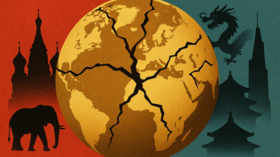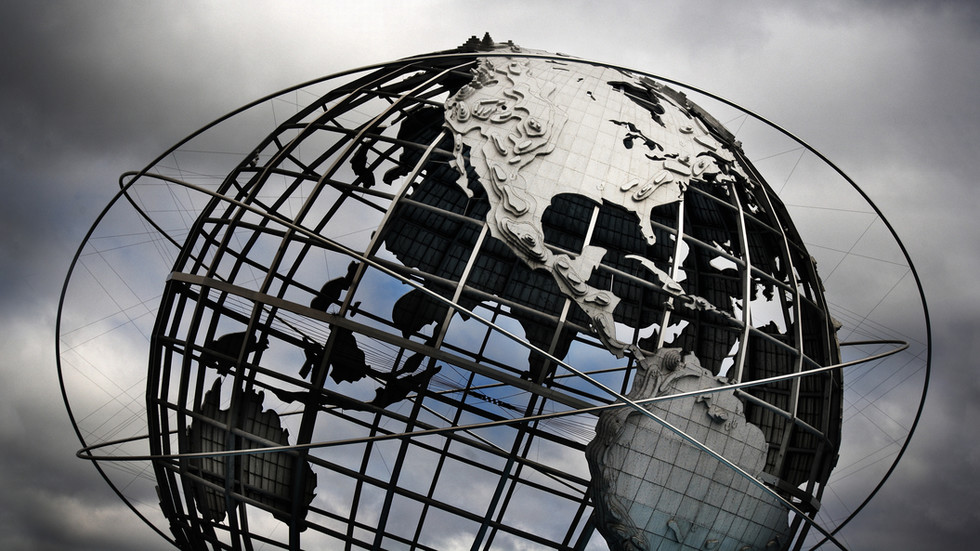The liberal order is over. Propriety has been abandoned, rules have been forgotten, and borders no longer mean what they once did. Force still exists, but peace lives only in the imagination of those who cling to old slogans. What we call the “international situation” is a spectacle without a script. The task is to describe it, and to understand it.
Every year, the Valdai International Discussion Club produces a report on the state of the world system. This year’s paper – tellingly titled ‘Dr. Chaos or: How to Stop Worrying and Love the Disorder’ – asks whether the world has entered a revolutionary situation, one that would bring about a wholly new order. The answer is no.
The changes are radical and often alarming, but they are not revolutionary. Why? Because the system is not unbearably unjust to any of the key players. It is decaying, but not so intolerable that it demands overthrow. Institutions are weakening, many survive in name only, but nobody is trying to destroy them outright. Even the most disruptive US administration in recent memory – Donald Trump’s – has never attempted a fundamental overhaul. Washington simply ignores the constraints when it suits its interests.
This is not because the global powers have grown cautious or responsible. It is because the order has become too complex to dismantle. The “top,” once embodied by the ruling great powers, can no longer exercise true hegemony. The United States is the clearest example: it lacks the money, the domestic drive, and even the will to police the world as before. Yet the “bottom,” the so-called global majority, is not demanding revolution either. Rising states see too much risk in total collapse. They would rather climb the ladder within the old framework than tear it down completely.
Here the Valdai report invokes Lenin’s definition of a revolutionary situation: the ruling class must be unable to rule as before, while the ruled must demand change. Today, the first condition exists but the second does not. Most countries prefer gradual elevation of their status without the gamble of a system-wide rupture.
Multipolar confusion
The shift from hegemony to multipolarity is profound, but multipolarity is not yet an order. It is an environment – fluid, confusing, and non-linear. Instability multiplies because the world is more interconnected than ever, yet also more conflict-ridden. For states, internal stability has become more important than external ambition. Governments everywhere, Russia included, now place domestic development and resilience above dreams of global domination.
What makes this transition unusual is that it is not driven by ideological revolutionaries. China, the rising giant, does not try to remake the world in its image. It adapts to circumstances and tries to minimize the costs of being at the center. The transformation is objective – a consequence of economic, social, cultural, and technological shifts that unfold simultaneously but not in sync. Only an artificial intelligence, the Valdai report quips, might one day calculate the vector sum of all these forces.
In the meantime, foreign policy is not withering away. On the contrary, international activity has never been greater. But its purpose has changed. States no longer dream of total victory. They seek incremental advantage – small corrections, favorable conditions for the near future, a perpetual negotiation backed by pressure.
The United States, for example, knows it cannot defend its dominance as in the past. Russia, too, will not risk its socio-economic stability for a decisive battlefield triumph. Nuclear deterrence makes full-scale war against major powers unthinkable. Israel may still act as if it can permanently alter the status quo, and Azerbaijan has restored its control over Karabakh. But these are exceptions. For most, international politics is returning to the positional confrontations of the 18th century: bloody contests, yes, but rarely total destruction. The concept of annihilating the enemy, born of the 20th century, looks unlikely to return.
Resilience in disorder
This widespread instability shows just how deep the changes run. Yet here lies the paradox: the modern world is surprisingly resilient. It bends under stress but does not break. The resilience is not born of nostalgia for the Western-made order, nor of a desire to preserve institutions that have outlived their purpose. It stems from the very complexity of today’s world and the internal development of states.

Resilience, then, is not a strategy but a necessity. Governments must adapt to changes they cannot control. They cannot restore the old order, but they cannot afford revolution either. The result is a kind of stubborn endurance, an insistence on muddling through even when no solid foundation exists.
This explains why foreign policy today often looks like theater: endless movement, constant crisis, dramatic talk of threats and enemies. In reality, states are focused inward. External maneuvers serve domestic goals. Even military operations, however destructive, are often meant not to conquer outright but to shore up internal stability or distract from internal weakness.
An 18th-century future
If this model prevails, international politics will resemble the 18th century more than the 20th. Rivalries will be fierce, wars will flare, but outright conquest will be rare. The “world order” will be less a structure than a shifting balance, with players large and small adjusting to survive.
The West, meanwhile, has lost its monopoly on shaping global rules. It still talks of defending the “liberal order,” but that order has already ended. No new order has yet replaced it. Multipolarity is not a system – it is the absence of one. For some, that is frightening. For others, it is liberating.
The Valdai report concludes that what we are witnessing is not collapse but transition – a revolution without revolutionaries. The powers at the top can no longer command. The majority at the bottom does not wish to rebel. The world is caught in between, disorderly yet durable, unstable yet strangely resilient.
This is the reality we must accept: the liberal world order has gone, and what comes next is unknown. What we can say with certainty is that international politics will be less about universal rules and more about national survival. The old dream of peace through dominance has ended. What remains is a constant, grinding competition – one that Russia and the rest of the world must learn to endure.
This article was first published by the magazine Profile and was translated and edited by the RT team.
Read the full article here
